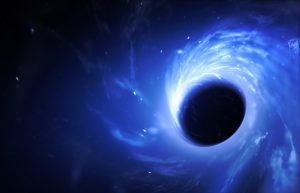The National Science Foundation’s LIGO (Laser Interferometer Gravitational-Wave Observatory) and the European-based VIRGO gravitational-wave detector have published new results from the first two observing runs. Four new black hole mergers have been announced. The LIGO and Virgo collaborations have now confidently detected gravitational waves from a total of 10 stellar-mass binary black hole mergers and one merger of neutron stars, which are the dense, spherical remains of stellar explosions.
 These observations were made about the same time as the first-ever detection of gravitational waves from a merger of two neutron stars – an event known as GW 170817.
These observations were made about the same time as the first-ever detection of gravitational waves from a merger of two neutron stars – an event known as GW 170817.
The Laser Interferometer Gravitational-Wave Observatory is a large-scale physics experiment and observatory to detect cosmic gravitational waves and to develop gravitational-wave observations as an astronomical tool. LIGO is a national facility for gravitational-wave research providing opportunities for the broader scientific community to participate in detector development, observation, and data analysis. One site is located in Hanford, Washington, and the other in Livingston, LA. These sites operate in unison to detect gravitational waves.
VIRGO is part of a scientific collaboration of laboratories from six countries: Italy and France (the two countries behind the project), the Netherlands, Poland, Hungary and Spain.
Collaborating member, Professor Shane Larson from Northwestern University, in Evanston, IL said: “Since [the initial discoveries], we’ve been sifting through the data, looking at every feature, comparing it to our astrophysical predictions, cross-checking it against monitors that tell us the health of the instruments, determining if it appears in all the detectors, and using our most robust (but slow-running) super-computer analysis codes.”
The primary way that LIGO/VIRGO work is that they fire lasers into long, L-shaped tunnels. These waves disturb the light. Detecting the waves opens up the Universe to completely new investigations.
This type of laser light requires a precision lens of the utmost quality to focus the beam to the exact location. Whether or not you are developing equipment for aerospace engineering, or for something closer to earth, Universe Optics is the right choice for you. Our team of dedicated engineers, along with our manufacturing facility, will deliver the quality lens you require for your project.